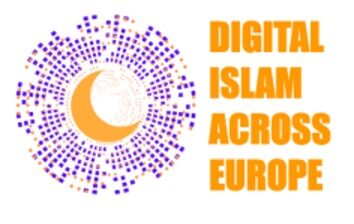
Gary R Bunt (UK Team and Website data analysis)
Anna Grasso (UK Team and Website data analysis)
This archive is part of the Digital Islam Across Europe project’s collection. One of the DigitIslam project outputs focuses on website data and collection analysis. The objective is to identify, catalogue and analyse Muslim organisations’ and actors’ websites (Online Islamic Environments or OIEs) from these different countries.1
This collection showcases Sufi orders in the UK, as well as other organisations associated with “mystical” forms of Islamic interpretation, which can also have impact politically and culturally across and within communities.2
We find in this collection platforms linked to different orders, such as the Naqshbandi, Chistiyya, Qadiriyya, Inayatiyya, and Boutchichiyya. Many of these groups have extensive networks with other countries, with centres in Europe and North America – and utilise social media to interact globally with affiliated networks and nodes.3
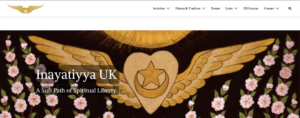
Inayatiyya order website
Amongst these we also find various educational organisations who organise courses, retreats, summers schools and other forms of knowledge transmission.
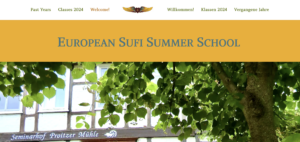
European Sufi Summer School website
The collection includes transnational organisations such as Minhaj-ul-Quran, an international non-governmental organization (NGO) founded by Shaykh-ul-Islam Muhammad Tahir-ul-Qadri in 1980 in Lahore, Pakistan. We also archived its Spanish branch (see Spain General collection).
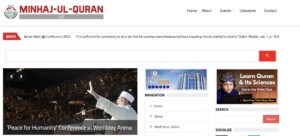
Minhaj-ul-Quran UK website
Furthermore, we chose to include organisations close to the Gülen movement (Hizmet), as it has been associated with this branch of Islam.4 The movement is mainly present through religious dialogue and educational initiatives. We find similar organisations in other countries involved in the DigitIslam project, such as the “Danube Dialogue Institute” (see Poland General collection).
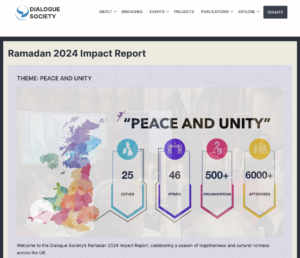
Dialogue Society website
This archive consists of an initial capture. We will be updating this list in due course. We believe this data can become a useful tool for researchers and the general public who have an interest in digital Islam across Europe as well as those who are mostly focused on the study of Islam or comparative religion within the British or Western context. Moreover, the analysis of these sites will be part of a wider project output through presentations and publications.
- For more information on this: https://blogs.ed.ac.uk/digitalislameurope/research-findings/archiving/ back
- For more on Sufism in the UK see: Geeves, R. 2000. The Sufis of Britain, Cardiff: Cardiff Academic Press. In 2006, following the London terrorist attack in 2005, there was a political effort to create a Sufi Muslim Council in the UK (Wayback link: https://web.archive.org/web/20061116214122/http://www.sufimuslimcouncil.org/welcome.htm). As in the case of other countries, Sufis were “instrumentalised” as a “good” Islamic group to fight the “bad” Muslims. This effort did not last long as it was not deemed truly representative of UK Muslims. (See for instance: Stjernholm, S. (2010). Sufi politics in Britain: the Sufi Muslim Council and the ‘silent majority’ of Muslims. Journal of Islamic Law and Culture, 12(3), 215–226.) back
- Gary R. Bunt, Islamic Algorithms: Online Influence in the Muslim Metaverse (London: Bloomsbury, 2024) 143-73 back
- See for instance GULAY, E. N. (2007). The Gülen Phenomenon: A Neo-Sufi Challenge to Turkey’s Rival Elite? Critique: Critical Middle Eastern Studies, 16(1), 37–61. back
Image by svklimkin from Pixabay
